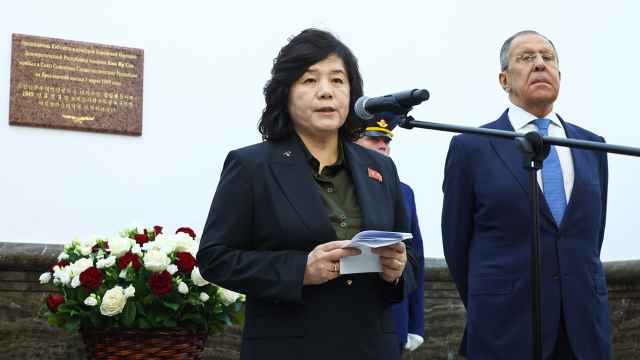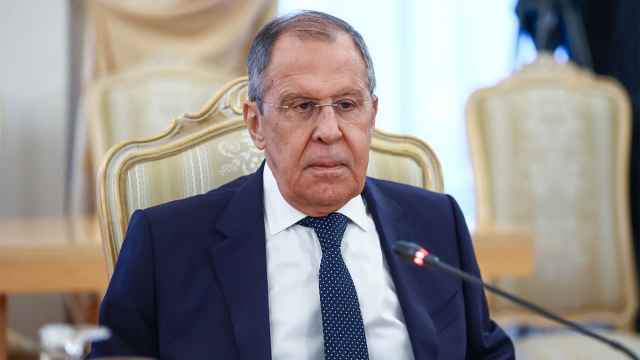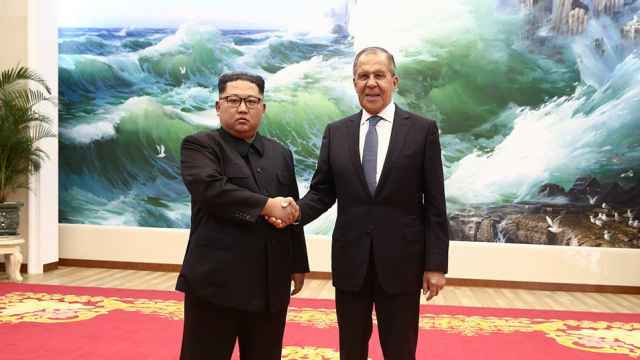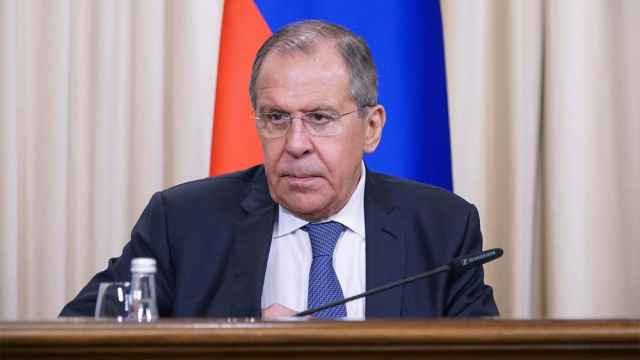North Korean leader Kim Jong Un said Thursday he wants to build a "forward-looking" relationship with Russia as he met with Foreign Minister Sergei Lavrov, state media reported.
The veteran envoy's two-day visit is expected to lay the groundwork for a trip to the country by Russian President Vladimir Putin, who was invited by Kim last month at a high-profile summit in Russia's Far East.
The September summit fanned Western fears Pyongyang might provide Moscow with weapons for its war in Ukraine.
Kim said it was the goal of the ruling Workers Party and the government "to work out a stable, forward-looking, far-reaching plan for the DPRK-Russia relations in the new era," the KCNA news agency said, using the official acronym for North Korea.
Lavrov lashed out at what he termed a "dangerous" US policy towards North Korea while touting the "new, strategic level" of relations between Moscow and Pyongyang.
"Like our North Korean friends, we are seriously worried about the intensification of military activity of the United States, Japan and South Korea in the region and by Washington's policies," Lavrov told journalists, according to Russian news agencies.
In the face of a record-breaking series of weapons tests by Pyongyang this year, Seoul has moved to strengthen its security relationship with traditional ally the United States while entering a trilateral defense arrangement that also includes Japan.
Seoul and Washington have staged joint military exercises with advanced stealth jets and U.S. strategic assets, while an American nuclear-armed submarine in July made a South Korean port call for the first time in decades.
A B-52 bomber capable of carrying a nuclear payload currently sits at Cheongju airport, about 100 kilometers (62 miles) south of Seoul, marking the first time one has landed in the country since at least 2000.
Local media reports said this week that the bomber would take part in a joint aerial drill near the Korean peninsula on Sunday that would involve South Korea, the United States and Japan.
Tightening relationship
But North Korea's relationship with Russia has also been tightening, Lavrov said Thursday.
"After the landmark summit ... we can say confidently that relations have reached a qualitatively new, strategic level," Lavrov reportedly told North Korean Foreign Minister Choe Son Hui at a meeting.
Moscow is also keen to assist North Korea with its energy needs, a constant source of struggle for heavily sanctioned Pyongyang, he told Russian outlets.
Lavrov, who laid wreaths at monuments to former North Korean leaders Kim Il Sung and Kim Jong Il in the morning, arrived in Pyongyang on Wednesday night after accompanying Putin on a trip to Beijing.
At a welcome dinner, he praised Pyongyang's support for Russia's war in Ukraine.
"We highly value your principled, unambiguous support for Russia's actions in connection with the special military operation in Ukraine," Lavrov was quoted as saying by Russia's RIA Novosti news agency.
Weapons transfers
Kim traveled to Russia last month aboard a specially built bullet-proof train for a face-to-face meeting with Putin, declaring bilateral ties with Moscow his country's "number one priority."
The two leaders met at Russia's Vostochny Cosmodrome, roughly 8,000 kilometers from Moscow, a location seen as symbolic given North Korea's space aspirations.
On Friday, the United States said arms shipments were already underway, with North Korea delivering more than 1,000 containers of military equipment and munitions to Russia in recent weeks.
According to a graphic provided by the White House, a load of containers was shipped by sea from North Korea to Russia between Sept. 1 and Oct. 1.
They were then delivered by rail to an ammunition depot about 290 kilometers from the Ukrainian border.
Pyongyang was seeking a range of military assistance in return, including advanced technologies, White House national security spokesman John Kirby told reporters.
Moscow this week denounced the allegations, insisting Washington had no proof that weapons were being shipped.
Washington-based analysts Beyond Parallel last week separately released satellite images showing what they termed an unprecedented build-up of train traffic along Russia's border with North Korea.
The flurry of activity "likely indicates North Korea's supply of arms and munitions to Russia," the group said in its report.
A Message from The Moscow Times:
Dear readers,
We are facing unprecedented challenges. Russia's Prosecutor General's Office has designated The Moscow Times as an "undesirable" organization, criminalizing our work and putting our staff at risk of prosecution. This follows our earlier unjust labeling as a "foreign agent."
These actions are direct attempts to silence independent journalism in Russia. The authorities claim our work "discredits the decisions of the Russian leadership." We see things differently: we strive to provide accurate, unbiased reporting on Russia.
We, the journalists of The Moscow Times, refuse to be silenced. But to continue our work, we need your help.
Your support, no matter how small, makes a world of difference. If you can, please support us monthly starting from just $2. It's quick to set up, and every contribution makes a significant impact.
By supporting The Moscow Times, you're defending open, independent journalism in the face of repression. Thank you for standing with us.
Remind me later.






